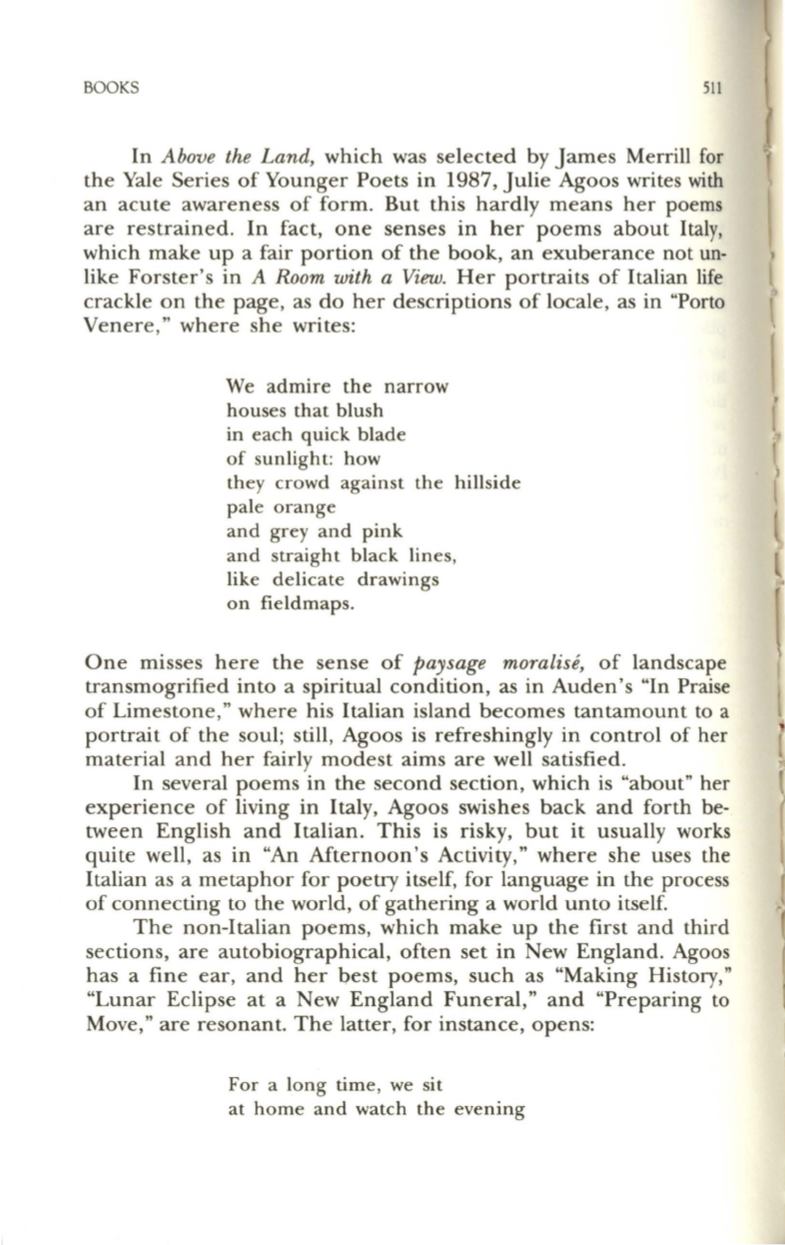
BOOKS
511
In
Above the Land,
which was selected by James Merrill for
the Yale Series of Younger Poets in 1987, Julie Agoos writes
with
an acute awareness of form. But this hardly means her poems
are restrained. In fact, one senses in her poems about Italy,
which make up a fair portion of the book, an exuberance not un–
like Forster's in
A Room with a View.
Her portraits of Italian life
crackle on the page, as do her descriptions of locale, as in "Porto
Venere," where she writes:
We admire the narrow
houses that blush
in each quick blade
of sunlight: how
they crowd against the hillside
pale orange
and grey and pink
and straight black lines,
like delicate drawings
on fieldmaps.
One misses here the sense of
paysage moralise,
of landscape
transmogrified into a spiritual condition, as in Auden's "In Praise
of Limestone," where his Italian island becomes tantamount to a
portrait of the soul; still, Agoos is refreshingly in control of her
material and her fairly modest aims are well satisfied.
In several poems in the second section, which is "about" her
experience of living in Italy, Agoos swishes back and forth be–
tween English and Italian. This is risky, but it usually works
quite well, as in "An Afternoon's Activity," where she uses the
Italian as a metaphor for poetry itself, for language in the process
of connecting to the world, of gathering a world unto itself.
The non-Italian poems, which make up the first and third
sections, are autobiographical, often set in New England. Agoos
has a fine ear, and her best poems, such as "Making History,"
"Lunar Eclipse at a New England Funeral," and "Preparing to
Move," are resonant. The latter, for instance, opens:
For a long time , we sit
at home and watch the evening


